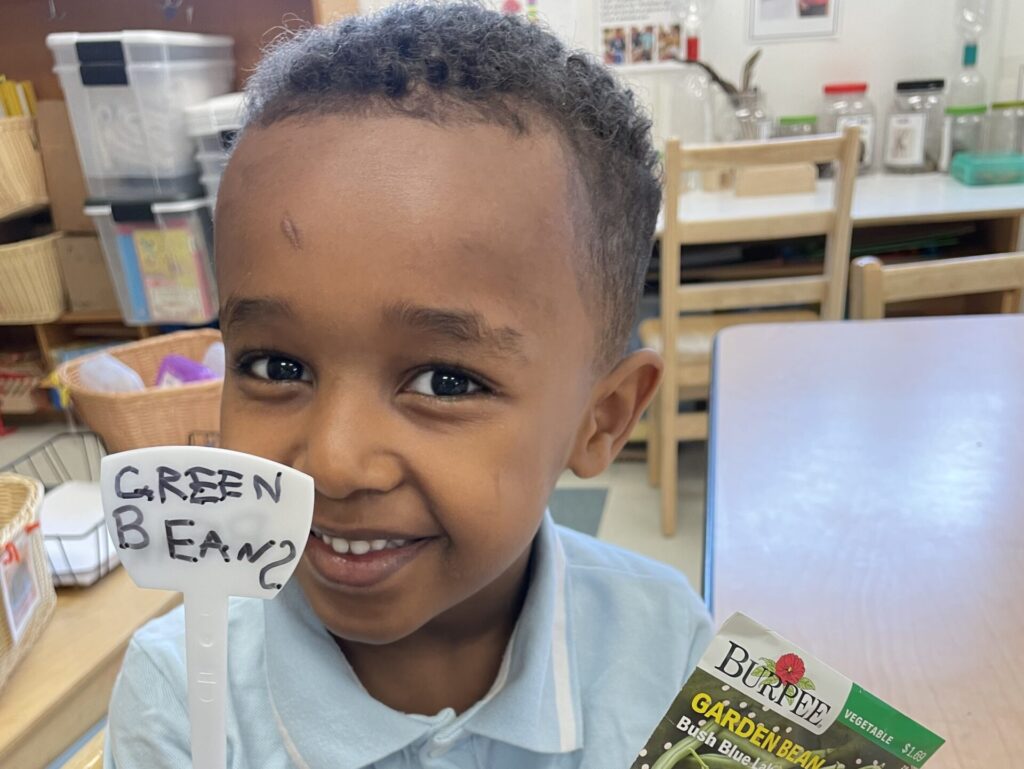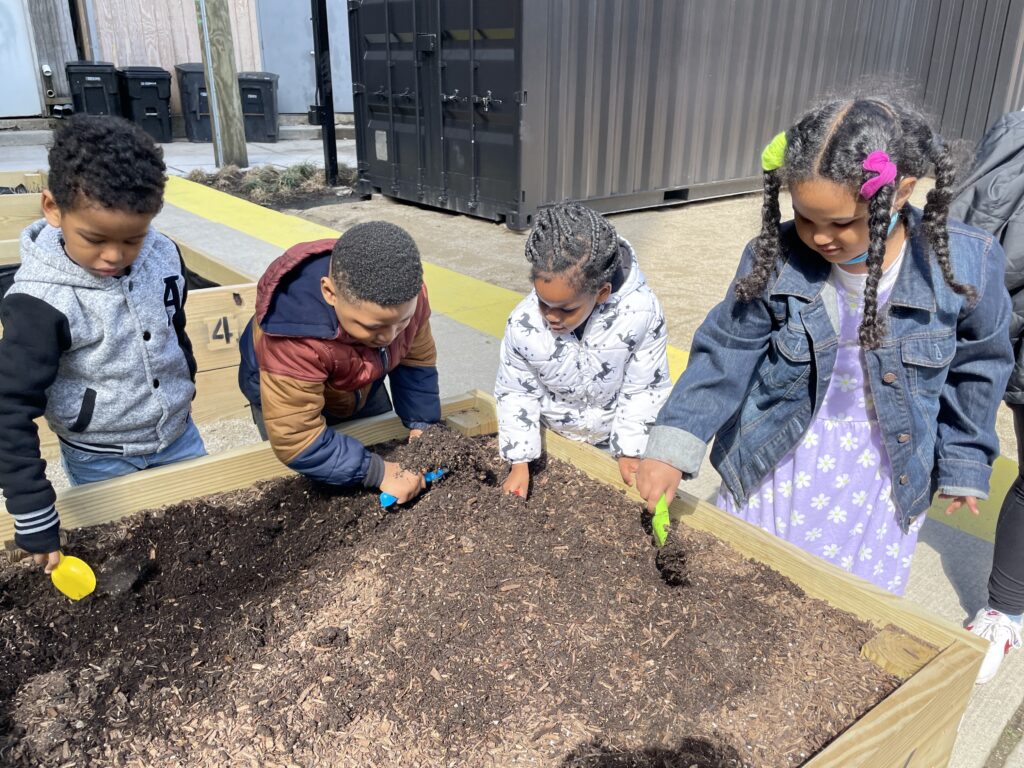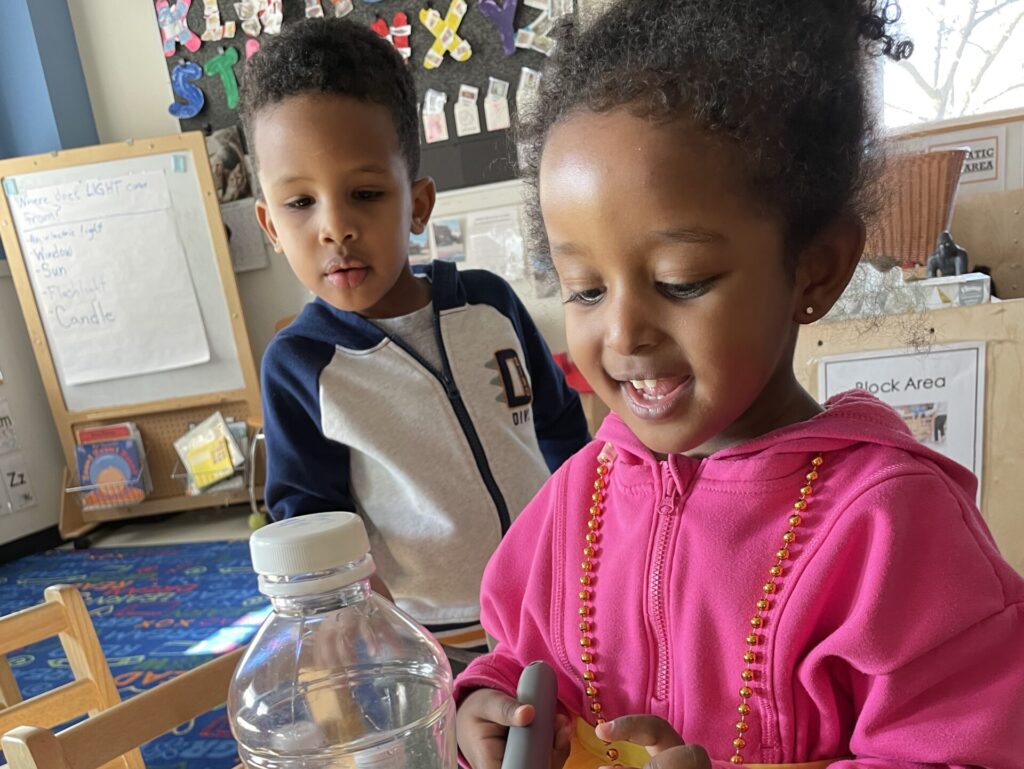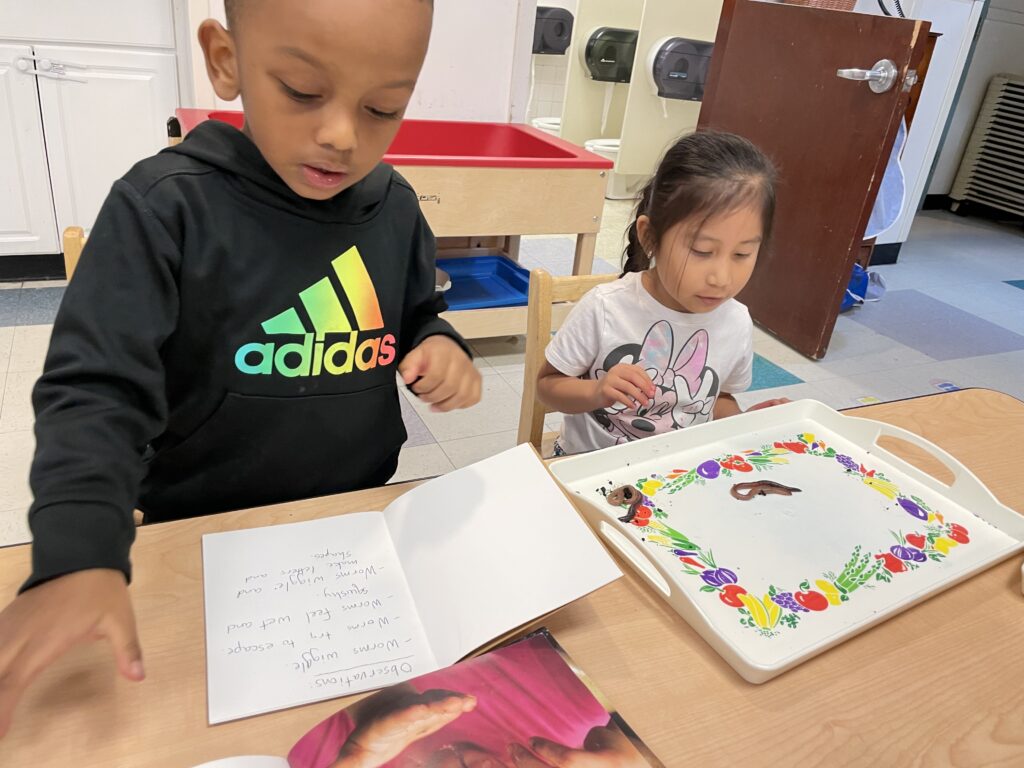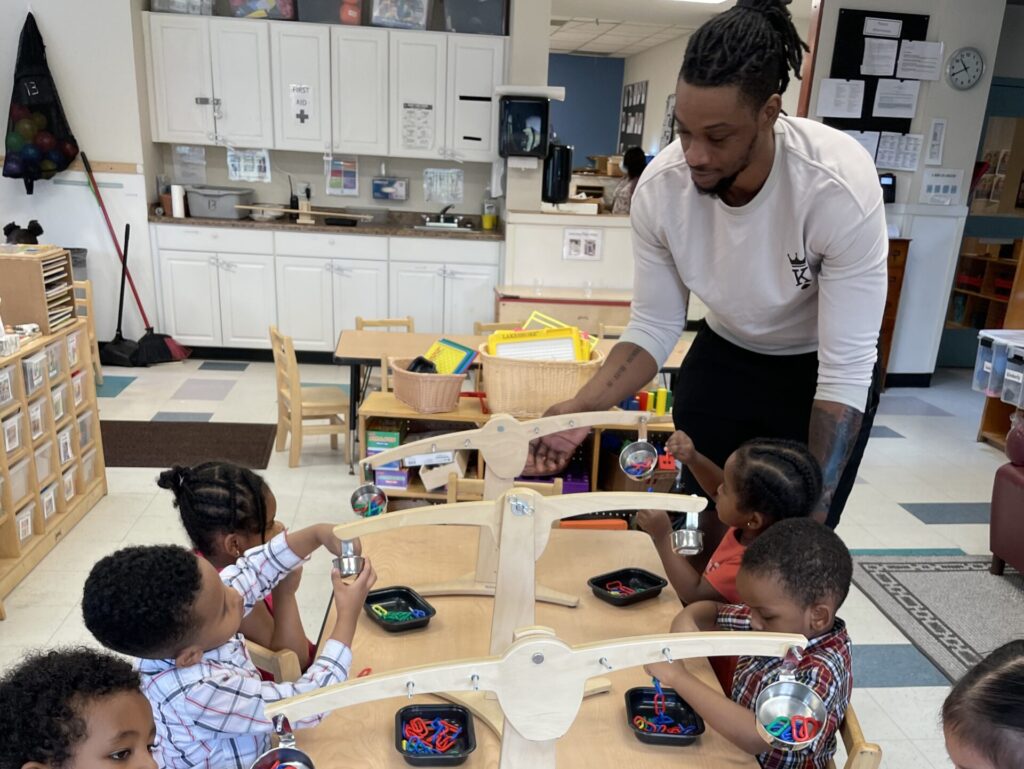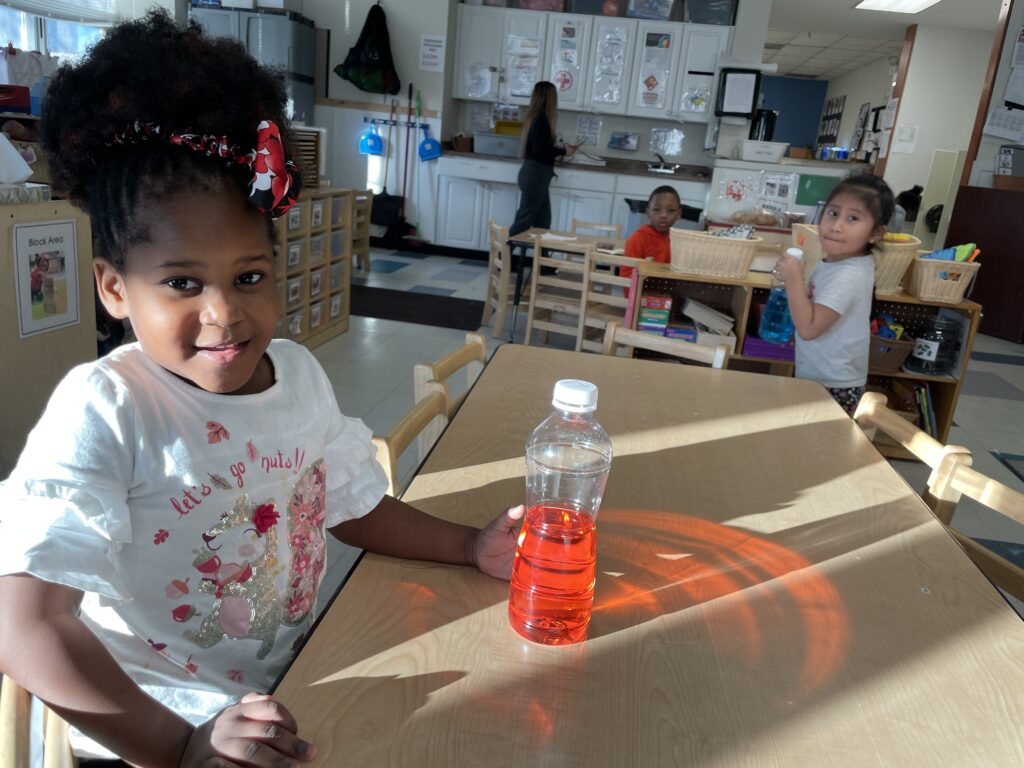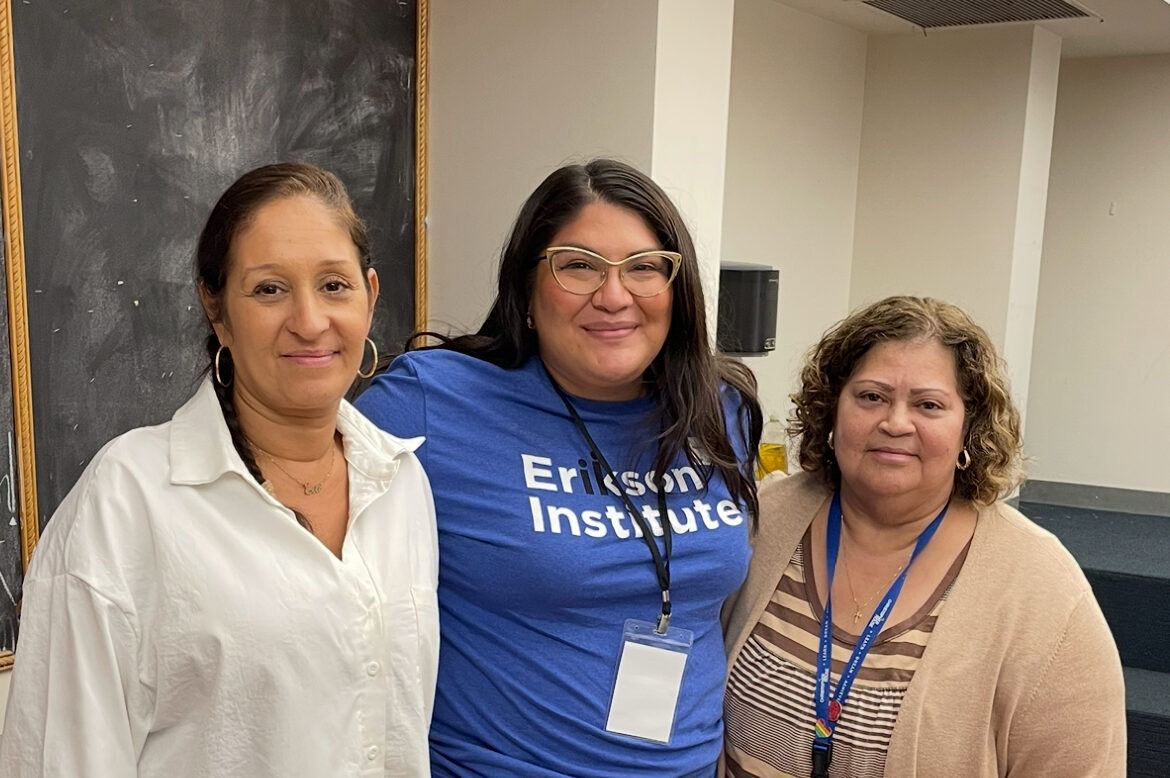Christopher House serves scholars from birth through 8th grade, and at every level – Infant and Pre-School, Elementary and Middle School, and After School – we integrate an age-appropriate STEAM-based (Science, technology, Engineering, Arts, Mathematics) education to foster creativity, support problem solving skills, and prepare scholars for their academic and professional futures.
“STEAM learning is critical at all ages and levels because it teaches scholars important and valuable life skills through critical thinking, problem solving, negotiating, and analytical concepts. These are real world soft skills that are needed in the 21st Century both academically and professionally.”
– Karen Ross-Williams, Director of Early Childhood and Youth Development
Classrooms explore STEAM in many different ways – guided lessons, interactive experiments, colorful projects. One example is Ms. Margo and her Room 13 Pre-School scholars, ages three to five. From studying silkworms and their habitats, to playing with light and colorful reflections, Ms. Margo’s scholars are STEAM explorers!
“Young children are naturally curious. They are experiencing new things and ideas in the world every day. Their thinking is magical. They are not sure why things happen, and they are not sure what effect they have on the world. We talk about using our “scientist senses” – what do we directly see, hear, smell, touch, and taste that teaches us what is happening in the world? And when we interact or experiment with objects or living things, what impacts do we have?”
In Ms. Margo’s classroom, like all our Early Childhood classrooms, she incorporates a Reggio-Emilia approach, a pedagogy that is student-centered and founded on the principles of respect, responsibility, and community through exploration, discovery, and play. Through this approach, we recognize one’s environment as the “third teacher” that encourages creativity, problem solving, relationship building, and positive play.
“Our classroom is divided into centers to help organize and challenge scholars’ thinking and learning: block play, dramatic play, table toys and puzzles, art area, library, etc. We call our science center “The Laboratory.” In the Laboratory, we rotate different specimens of natural samples like a bird’s nest or even a jar or cicada skins. We try to incorporate as many elements from our natural environment as possible. We also rotate different tools and toys to foster learning about physics – items like magnets, gears, flashlights, and mirrors. We study chemistry by experimenting with matter, often through cooking projects or using sand, water, snow, and ice in our sensory table. We want to keep things engaging so the class is excited about learning and exploring new things.”
The warm and supportive environment that Ms. Margo facilitates in her classroom helps her scholars feel comfortable and find joy in experimenting and exploring new subjects. It is her hope that by creating a welcoming and creative learning environment and prioritizing a STEAM-focused education for her scholars, she can help prepare them to take the next steps in their educational journeys and excite them about the possibility of exploring STEAM careers in the future.
“In the short term, I hope our Pre-School scholars develop a habit of exploring bravely – touch that moth, pound that lever, plop that rock into water, see what happens. Try changing what you’re doing, predict what will happen, then see if it does! In the long term, I hope our scholars’ preschool experiences build a strong, visceral foundation of scientific concepts that they can think back on when they are expected to build abstract models of scientific ideas in high school or college. I hope these experiences will spur some of them to work in STEM fields someday and use science to improve the world.”
